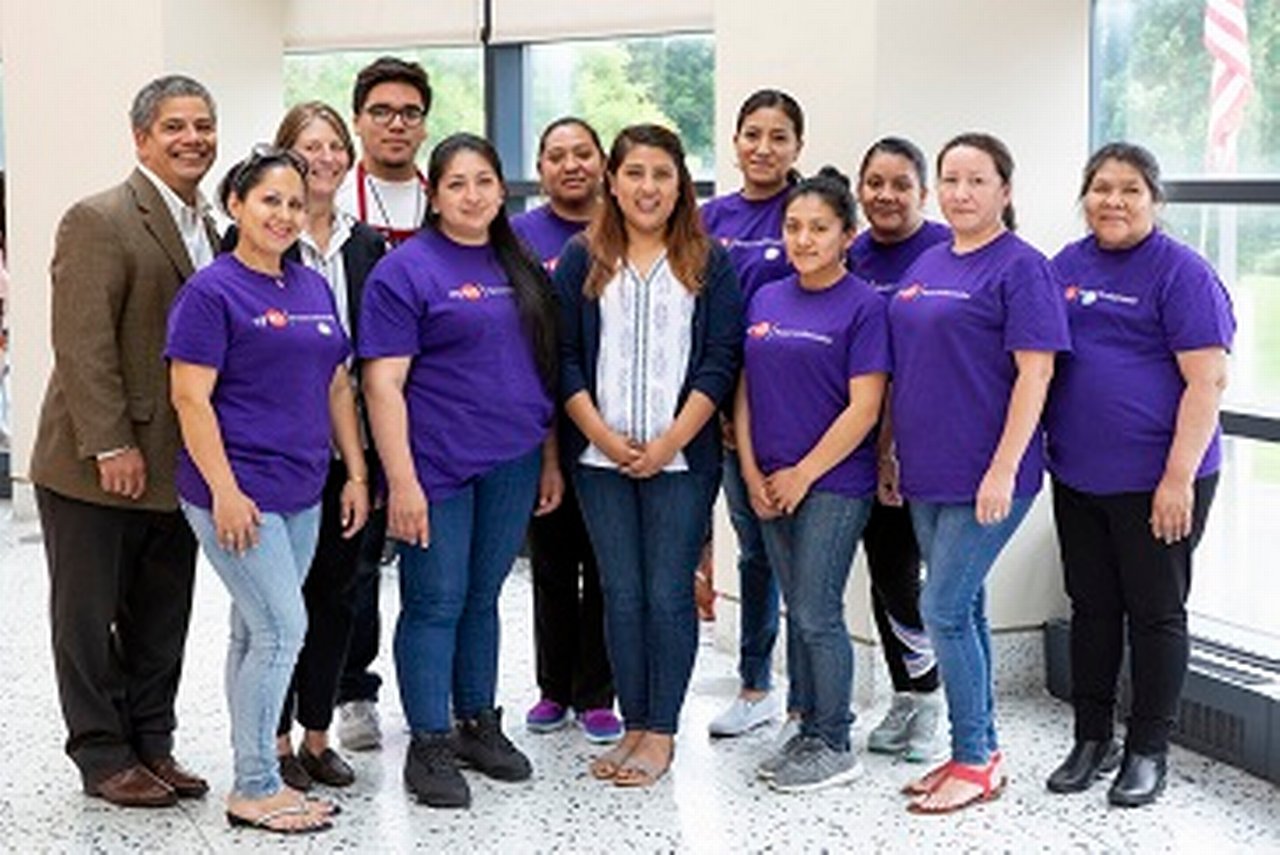Empowering immigrant families and fostering neighborhood success
The New York Hall of Science’s Parent University helps local parents prepare their children for STEM career paths.
As a leader in twenty-first century STEM (Science, Technology, Engineering and Math) programming, the New York Hall of Science draws students, families and teachers from across the greater New York City area and beyond. The organization has a strong commitment to its immediate neighborhood of Corona, Queens, as well. This vibrant, largely foreign-born community is highly aspirational but underserved in many respects, including a lack of quality STEM programming in its public schools.
A Made for Good Creative Enterprise grant from Deutsche Bank Americas Foundation helped NYSCI launch its new culturally and linguistically attuned Parent University. The program empowers local, low-income immigrant parents to build their own science literacy, and understand the skills and credentials their children will need to qualify for different STEM careers. The program helps parents map a path for their children to attain a rigorous STEM education, navigating the critical school transitions along the way. Parents also develop skills to advocate for high-quality science education in their community.
In March, Deutsche Bank Americas Foundation supported a symposium at NYSCI focused on providing STEM programming and opportunities around the country for first-generation immigrants in under-resourced communities. The symposium brought together representatives from STEM-based museums, nonprofits and philanthropic organizations that advocate for immigrant families, as well as academic leaders and policymakers in the fields of immigration and youth development.
Speaking at the symposium, Alessandra DiGiusto, Deutsche Bank’s Head of Corporate Social Responsibility US, said, “An essential part of Parent University’s success is that it is hyper-local. Yet it also demonstrates a model that could help solve some of the challenges we face as a society: ensuring pathways to the middle class, strengthening the pipeline of our future STEM workforce and correcting the persistent underrepresentation of people of color in the STEM professions.”

